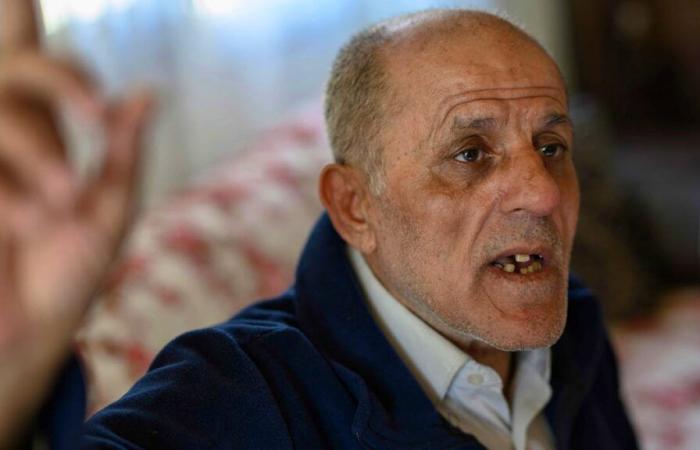Mehmet Ertürk can no longer eat the bread his wife Hatice prepares. This Turk with sunken cheeks has just been released from a Syrian jail and half of his teeth are missing, while the others are in danger of falling out. “It was torture upon torture,” he said.’AFP by miming the baton blows to the mouth that he says he received from the guards of the Palestine Branch, a prison in Damascus where he spent part of his almost twenty-one years of detention in Syria.
Arrested in 2004 for smuggling, Mehmet Ertürk found his village, Magaracik, on Monday evening, perched at the top of a winding road in the middle of ocher land dotted with olive trees, 10 minutes from the Syrian border across fields. “My family thought I was dead,” says the 53-year-old man, whose face and gait make him look twenty years older.
The night he was released, he heard gunshots and began to pray: “We didn’t know what was happening outside. I thought I was finished.” Then loud hammer blows begin to resonate. A few minutes later, the rebels who entered Damascus to bring down Bashar al-Assad opened the prison doors wide.
“We hadn’t seen him for eleven years, we thought he was dead, we had no more hope,” confesses his wife, sitting in the courtyard of the family home with their youngest daughter, barely aged six months when his father was arrested. Sentenced to fifteen years of imprisonment, the Syrian prison administration will leave the father of four children to languish in an underground dungeon, at the mercy of zealous guards, without worrying about his end date of sentence, scheduled for 2019.
“Our bones came out of the flesh when they hit our wrists with hammers,” he says. “They also poured boiling water down the neck of a fellow inmate. The flesh on her neck has gone all the way down,” he said, pointing to his hips. He pulls down a sock to reveal his right ankle, darker in places. The trace of the convict chains.
“During the day, it was strictly forbidden to speak (…) There were cockroaches in the food. It was damp, it smelled like toilets,” he continues, recounting the days “without clothes, without water, without food: it was like being in a coffin.” “They put 115, 120 people in a cell of 20 people. “A lot of people died of starvation,” he said, adding that the guards “threw the dead in dumpsters.”






